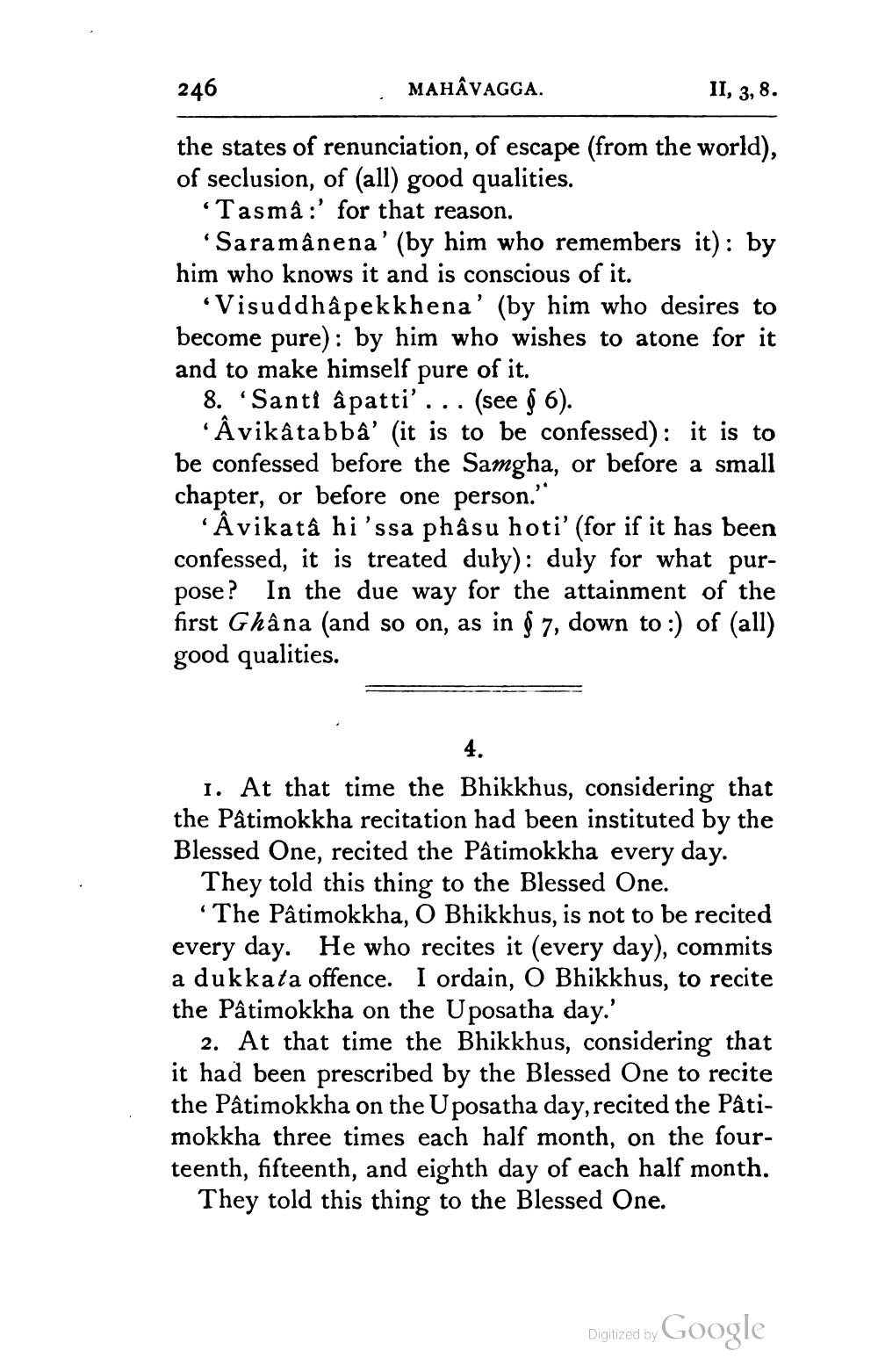________________
246
: MAHÂVAGGA.
II, 3, 8.
the states of renunciation, of escape (from the world), of seclusion, of (all) good qualities.
*Tasmâ :' for that reason.
'Saramânena' (by him who remembers it): by him who knows it and is conscious of it.
Visuddhâpekkhena' (by him who desires to become pure): by him who wishes to atone for it and to make himself pure of it.
8. 'Santi âpatti'... (see § 6).
·Âvikâtabba' (it is to be confessed): it is to be confessed before the Samgha, or before a small chapter, or before one person.'"
'Âvikata hi’ssa phâsu hoti' (for if it has been confessed, it is treated duly): duly for what purpose? In the due way for the attainment of the first Ghâna (and so on, as in § 7, down to :) of (all) good qualities.
1. At that time the Bhikkhus, considering that the Pâtimokkha recitation had been instituted by the Blessed One, recited the Pâtimokkha every day.
They told this thing to the Blessed One. "The Pâtimokkha, O Bhikkhus, is not to be recited every day. He who recites it (every day), commits a dukkata offence. I ordain, O Bhikkhus, to recite the Pâtimokkha on the Uposatha day.'
2. At that time the Bhikkhus, considering that it had been prescribed by the Blessed One to recite the Pâtimokkha on the Uposatha day, recited the Pâtimokkha three times each half month, on the fourteenth, fifteenth, and eighth day of each half month.
They told this thing to the Blessed One.
Digitized by Google




